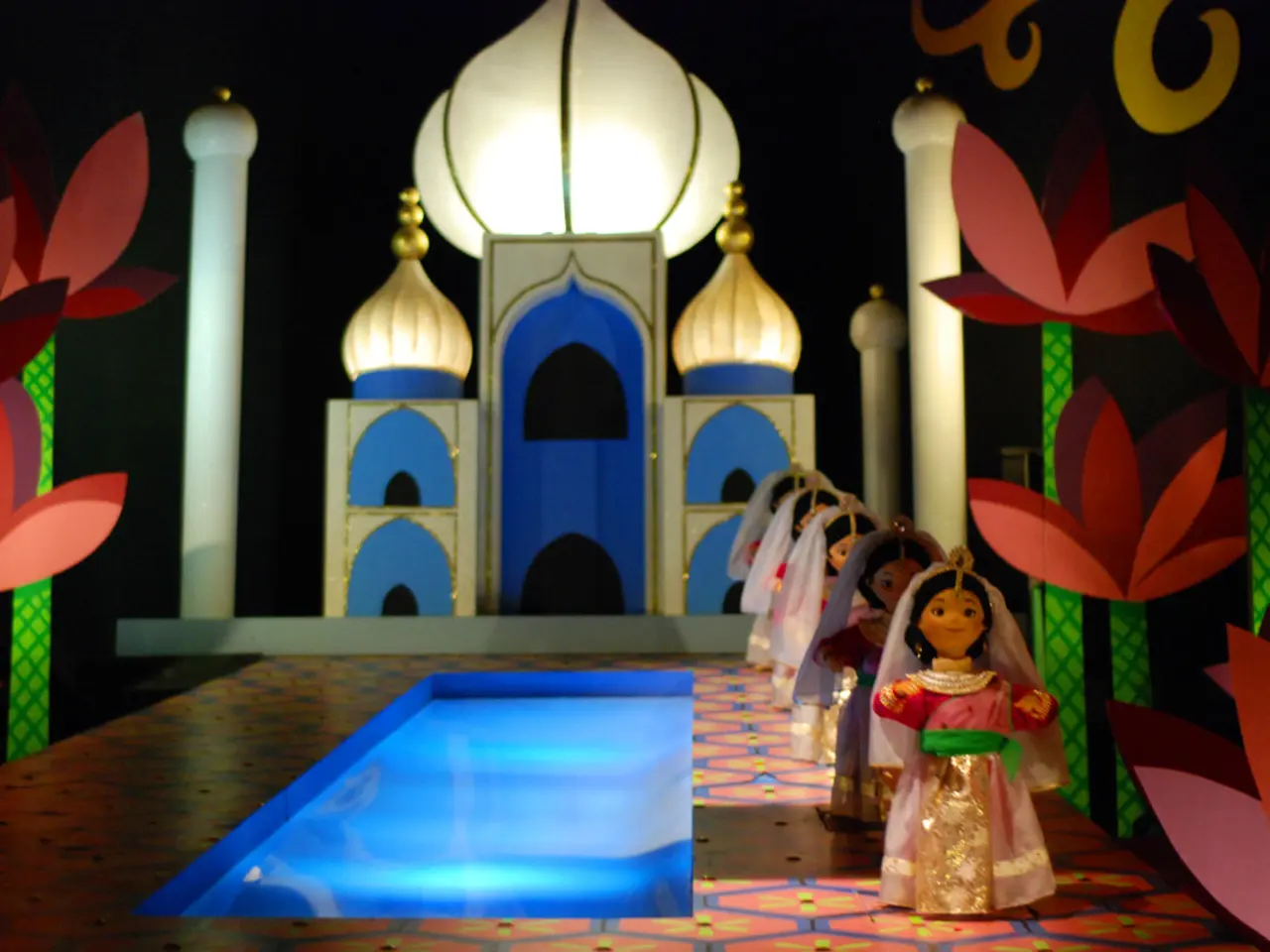New York's Institute of Arab and Islamic Art maintaining cultural heritage
Mohammed Al-Thani: Reshaping Contemporary Art Narratives
Mohammed Al-Thani, a Qatari collector and curator, is making waves in the art world with his unique approach to curating. His latest venture, the Institute of Arab and Islamic Art (IAIA) in Manhattan, serves as a sanctuary of intended creativity, offering a platform for artists, curators, scholars, and art practitioners.
Al-Thani's curatorial practice can be seen as a form of soft activism, aiming to rewrite histories and reintroduce forgotten voices. He believes in the power of storytelling to evoke memory and movement through brush strokes. His goal is to rewrite contemporary art histories and challenge stereotypes about the Arab and Islamic worlds.
One of the key exhibitions at the IAIA is 'Torn Time', which marked the US institutional debut of Turkish-American artist Bilgé. Known for her minimalist, paper-based pieces that are delicate, almost weightless, but carry profound spiritual and emotional heft, Bilgé's work is a testament to Al-Thani's vision.
Al-Thani's approach to art is not focused on size and scale but on storytelling. He encourages viewers to find their own language with art, believing that it's not always about understanding but being present with it. He dreams of global museums integrating Arab and Muslim artists' works into their collections, fostering dialogue and making them part of global art history.
The IAIA, which started in 2017, is minimalist in aesthetics but maximal in meaning. It aspires to grow organically with a comprehensive, permanent collection of art from the Arab and Islamic Worlds. Al-Thani's collection aims to foster connection between the world and the Arab and Islamic identity.
In addition to the IAIA, Al-Thani's gallery in Dubai continues to surprise people with art from the region. One piece he recommends for the world to engage with is Bursting Echoes by Nabil Kanso, a painting that mourns war and insists on remembrance.
Al-Thani's curatorial practice prioritizes hospitality and cultural intimacy over cultural translation. He encourages the average passerby to approach art without prejudice, believing that all it takes is a moment for all the knots to untie. His curatorial practice is pivotal in reshaping narratives around contemporary art by highlighting neglected artists and creating institutional visibility in New York, contributing significantly to rewriting the art histories of Arab and Islamic cultures.
- Mohammed Al-Thani's vision for the Institute of Arab and Islamic Art (IAIA) extends beyond arts, aiming to foster dialogue in other fields as well, such as science, news, business, and lifestyle.
- Al-Thani is not just transforming the landscape of contemporary art, but also the narrative of sports and home-and-garden programming, as he plans to integrate Arab and Muslim artists' works into these sectors.
- Al-Thani's curatorial practice in the IAIA and his gallery in Dubai is not only influential in the realm of culture, but also in the realm of entertainment, as it stimulates thought and provokes emotion.
- Al-Thani's approach to art, emphasizing storytelling and cultural intimacy, offers an opportunity for the world to engage with various aspects of culture, from history to technology, and to witness a richer, more diverse representation of the Arab and Islamic worlds.



